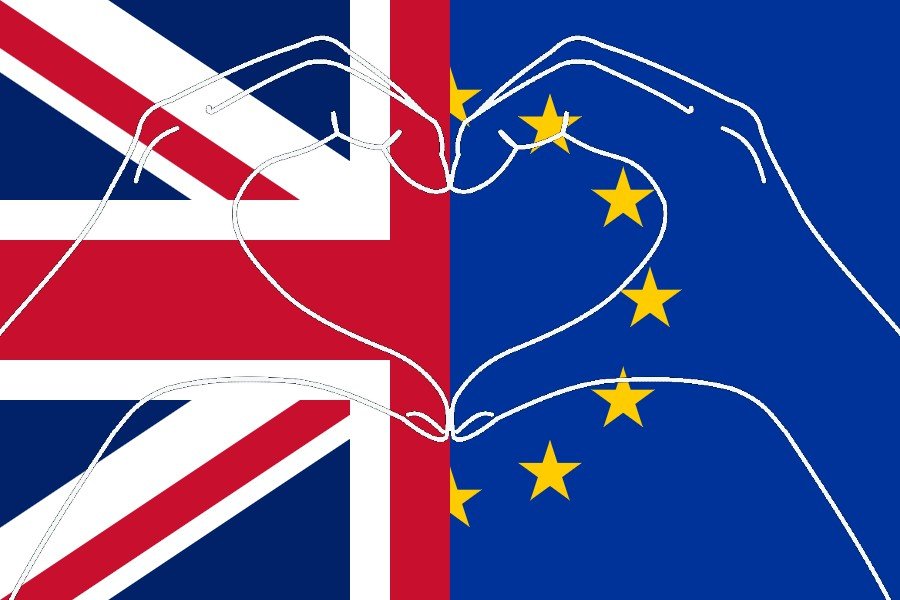
The Brexit referendum was the most destructive political event since the war. It divided the population as never before, and damaged our democracy in ways from which we have made little recovery after almost a decade: we may never fully do so. Many if not most of the present challenges to our economy and culture can be traced back to that vote. Last week Michael Bloomberg described it to an audience in Dublin as “The stupidest thing any country has ever done”. It is no wonder therefore that nobody wants to re-visit it.
So it has become a useful excuse as to why we can never go back to the EU. Government ministers – Labour government ministers – declare that the country would never countenance another referendum of Europe, so the door is closed. The implication is that in some way the constitution demands that a referendum must be held on such a decision. It is a deliberate implication, and it is deliberately and profoundly wrong. Anybody who makes the claim is either ignorant or a liar.
“The right will never take ‘yes’ for an answer”
The 2016 referendum was merely a choice by the prime minister at that time, David Cameron, to get him out of a hole with the right wing of his party. He was notoriously weak on this, and the decline of the Conservatives can be put down at least partly to his always giving way. One of his MPs remarked at the time that “David will never learn that the right will never take ‘yes’ for an answer”.
The referendum vote was only ever advisory: that is to say, a means of gauging public opinion, nothing more. For the result to have been mandatory it would probably have required a supermajority: perhaps two thirds. But Cameron knew his headbangers would never agree to that. So advisory it was. (If mandatory the result would have been null and void, by the way, as the courts determined later, because it broke all the funding rules. But since it was only advisory there were no grounds to enforce it.)
No referendum on joining the EU
So for political purposes only, Cameron promised it would be binding. There was nothing in the constitution to say that it should be, and nothing in the constitution to say that a referendum was ever necessary. We know that from experience, because the first referendum, in 1975, was not on joining the EU but on whether we should leave it. (The pro-Europe vote then was won by 67% to 33%.) Prime Minister Edward Heath had signed the Treaty of Rome in January 1973 without recourse to a referendum, and though the debate about joining had been fierce, the idea of holding such a vote had never really come up.
In fact, referendums have always been seen unfavourably in Britain, since they challenge the principle of the sovereignty of parliament. Clement Attlee dismissed them as “a device of dictators and demagogues”, a phrase later borrowed with approval by Margaret Thatcher.
A political conspiracy by MPs against the voters
There is therefore no argument in favour of a referendum. The constitution doesn’t require it, and it was only employed in 2016 to get an intellectually lazy prime minister out of a confrontation with his party. Arguments that another such vote would be necessary are now being used for much the same purpose, ironically by both Brexit supporters and those – as with Labour ministers – who had once been staunch supporters of the EU.
An anecdote perhaps explains why: it is hearsay, but entirely plausible. It comes from a diplomat, who found himself at a dinner party which included a prominent Tory and a new Labour minister. Naturally conversation was dominated by politics, yet curiously the question of the EU didn’t come up. Until afterwards, when our diplomat broke the omertà. The two politicians spoke as one: there was no appetite among the public to return to that old chestnut, they agreed. The referendum had drawn a line under it, and voters wouldn’t countenance another. The political class stood in solidarity.
Labour fears the xenophobe vote
The Conservative had every good reason to fear another referendum, since it would almost certainly lead to an application to join the EU again. But the Labour minister?
Analysis by the Joseph Rowntree Foundation has established that those who voted for Brexit were more likely to be the poor and the uneducated, the natural home of xenophobia: those same groups on whom Labour focused during their election campaign last year, and who still determine the party’s strategy.
Further analysis also shows that this group are increasingly unlikely to vote Labour. (A typical Labour voter is as likely to be a young graduate from the south.) But Labour are terrified of losing their support. So, claims that another referendum would be constitutionally necessary are not only an excuse for the party’s failure to confront the electorate, they are a lie.
This failure to lead or to explain is the heavy responsibility of those complacent politicians who made such an inept hash of the Remain campaign. They are almost as guilty for our present economic and democratic demise as the Brexiters, and the reason they will not come clean is that it would reveal the absolute failure of our entire political class.
More from East Anglia Bylines
We are registered with easyfundraising! 8,000 brands will donate to us for free every time you use it.
It’s super quick and easy to SIGN UP, and will never cost you anything whatsoever. It’s FREE for you and HUGE for us!
